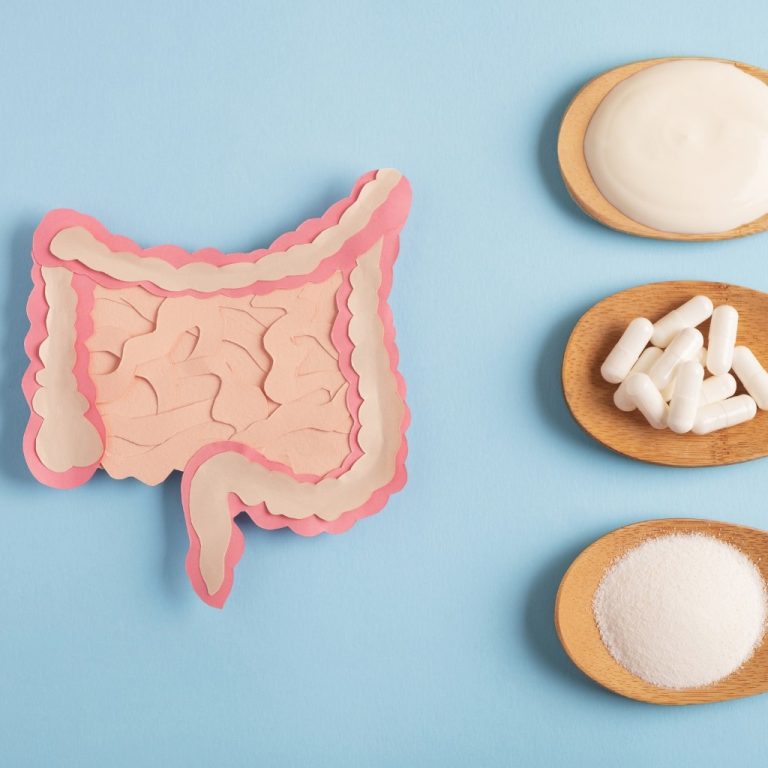Once you’ve been diagnosed with IBS, there are a few things that you should be aware of or avoid. It’s important to listen to your body and recognise which foods do you good and which cause complaints. This functional disease shouldn’t reduce the quality of your life. That is why it is so critical that patients know the symptoms so that they can regain joy in outings and everyday life.
Irritable Bowel Syndrome typically includes stomach pains and other symptoms such as diarrhoea, constipation and flatulence. The exact causes of IBS are still unclear and could be different for every individual. This syndrome effects women twice as often as men with limitations in quality of life varying between the affected. Roughly half of the affected report no limitations in their daily life (e.g. job, family, sexuality, free time), whereas the other half report mild to severe restrictions in their day-to-day lives. Stress is frequently mentioned as a possible cause for IBS.
More information about Irritable Bowel Syndrome
Brain-gut-axis – to what extent does the brain influence the digestive tract?
The brain-gut-axis has been the focus of research for the past few years. The neural connections between the intestines and the brain constantly exchange information. This exchange works both ways with the nervous system playing a central and fundamental role. Furthermore, the intestines are capable of regulating themselves. Unlike the thigh muscles, the intestines don’t need the brain to tell it when to move. Nevertheless, the brain still gets involved in, for example, stressful situations. Before a test, a competition or a particularly nerve-wracking situation, the intestines usually need to do a number two. Animal documentaries sometimes show how a giraffe releases faeces once it begins running away from a lion. The nerves in the brain prepare the body for fight or flight and get rid of unnecessary burdens. This is just an example of how the brain can influence the intestines. The brain-gut-axis is a complex system with many proven connections between the intestines and depression and other mental diseases. The intestines produce over 20 hormones, including serotonin. This neurotransmitter is responsible for happiness and our mood. A whopping 95% of our serotonin is produced in the intestines, making it the main hormone of the intestinal-neural-network and even controls, among others, intestinal movement.
What therapies are effective against IBS?
After the diagnosis of IBS, the affected often wonder what they can do against their complaints. There are many ways to tackle and alleviate symptoms depending on the severity of the syndrome.
Here is a quick overview of possible therapies:
- Diet
- Psychological support
- Relaxation techniques
- Exercise
- Symptom diary/food diary
- Drugs/probiotics
The right diet for IBS

People with Irritable Bowel Syndrome are often sensitive towards certain foods and this sensitivity can vary from person to person. They should be careful with their diet to alleviate symptoms or make them bearable. For example, patients shouldn’t eat too much or too little fibre. Sugars such as fructose or sorbitol and coffee can trigger or even aggravate symptoms of IBS. The affected are also very sensitive towards stretch stimuli in the intestines from sumptuous meals since these normal digestive processes and production of gas in the intestines are especially painful for them. This hypersensitivity can also be triggered or exasperated through stressful situations and emotions.
Physicians recommend that patients with IBS keep a nutrition diary to see which foods cause them complaints. This enables patients to choose the right foods with more ease. Many patients try the FODMAP-diet. This type of diet restricts the intake of fermentable oligo-, di-, monosaccharides and polyols. These are simple and complex sugars as well as polyalcohols that are fermented by bacteria in the colon and produce gas. Moreover, these foods draw out large quantities of water from the intestines and cause diarrhoea. Simple and complex sugars include fructose from fruits or honey, lactose from dairy products, fructans from wheat, garlic or onion, and galactose from beans, lentils and soja-beans. Sweeteners such as xylitol, sorbitol and maltitol that are naturally found in plums, apricots and corn, also belong to this group. The many foods that are excluded from this diet can make eating out difficult in daily life. A good start or a small change could be reducing individual foods that contain fructose, lactose and sorbitol when eating. This makes it easier to find out which food intolerances are responsible for causing or triggering symptoms.
Can psychotherapy treat IBS?
By now, it is well known that stress can upset the stomach or intestines. This underlines even more how closely our brain and gastrointestinal system are intertwined. This connection also shows why IBS is included among psychosomatic diseases. Psychosomatic means that there is a close connection between symptoms and our mental condition. Even the development of a postinfectious IBS starts with an infection, and mental symptoms often aggravate the physical symptoms. Cognitive behaviour therapy, biofeedback and hypnotherapy can effectively be combined with IBS-treatment. The affected learn how to cope with symptoms, negative thoughts and adverse behaviour to improve their quality of life. An important part of IBS treatment is to reduce negative stress and mental strain as much as possible. Relaxation techniques are a proven method in alleviating symptoms.
Probiotics and drugs to treat IBS?
Many people are very critical towards drugs, but a number of them are used to treat Irritable Bowel Syndrom. However, they are only used to treat the symptoms of IBS and can’t cure the disease. Probiotic treatment is a viable alternative. Probiotics are specially chosen bacterial strains. These high-quality, medically relevant bacteria have a proven positive effect on intestinal health and IBS. Bacteria are often associated with diseases however, probiotic bacteria fulfil vital tasks in the human body. A balanced intestinal flora, for example, is critical at keeping pathogenic germs in check and at bay. The additional intake of probiotic bacterial strains creates a healthy intestinal flora and has a positive effect on many metabolic processes within the body.



























